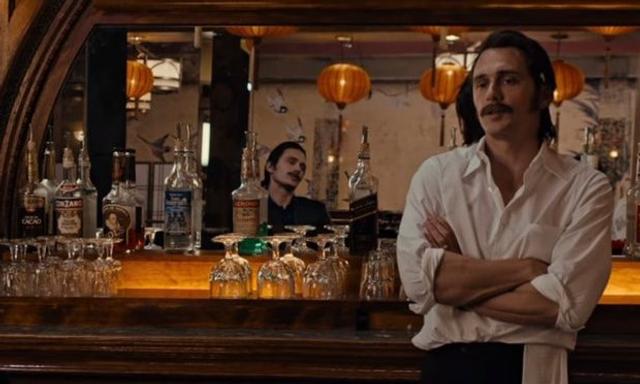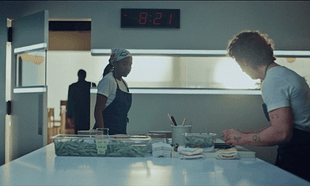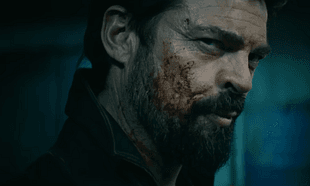Anyone's who watched HBO's seminal crime epic The Wire will know that the show often rewarded its viewership with an intoxicating blend of humour, wit, and a side of the American experience that's rarely seen and often from the nose down rather than the ground up.
As The Deuce finished up its eight-episode first season, David Simon can rest easy knowing that he has another hit on his hands and one to rival The Wire, Generation Kill or Show Me A Hero. In fact, there's every chance that The Deuce can be as successful, pertinent, and run for as long The Wire or even - whisper it - The Sopranos. The level of intelligence, understanding, authenticity and depth that's on display in almost every episode reminds us of what peak television is supposed to look and sound like, not what imitators try to make it. If anything, The Deuce has more in common with the likes of Paul Schrader or Martin Scorsese than it does with anything else on television.
The Deuce is a period drama, but the period it's set in isn't glamourised or made to be something to be reminisced upon like, say, Netflix's Stranger Things or fellow HBO offering Westworld. Here, the '70s are as people largely remember them - vaguely threatening, coated with dirt under its nails, a general lack of earnestness and a sort of indiscriminate awfulness that pervaded almost everything. It was shit, everyone knew it was shit, and there was only a few things here and there that could be done about it. Much like The Wire, the audience is brought into the world that's fully formed - unlike other HBO offerings, namely Westworld, which infuriates viewers with the slow and tiresome reveal of the course of episodes. The Deuce delights in how upfront is about everything; and the way in which the story unfolds so carefully means that nothing is shock-revealed. Instead, characters and stories are introduced in a logical, convincing manner without the need for cheap tricks - no pun intended.
Maggie Gyllenhaal's character is a street-walker who slowly begins to back away from the path she's on after crossing paths with a relatively amiable porn director. Over the course of the season, the nature of her business is illuminated and never ever made to be titillating or exciting, or even remotely appealing in any way, shape or form. In fact, it's this very reason that she begins to see pornography as a way out of prostitution and a means to assert control over herself and her career. Throughout, Gyllenhaal's character is portrayed as a straight-talking businesswoman who knows her worth in dollars and sex, and can make a determination of her value on that basis. It's not particularly uplifting, mind, but to see a female character assert that sort of agency and be that frank about sex and the commodification of it - especially a high-profile TV series like this - is something.
The other marquee name is, of course, James Franco - who plays an unusual dual role as Vinnie and Frankie Martino, identical twin brothers who through a slow and deliberate process - not deliberate on their part, per se - become fronts for the Gambino crime family. What's interesting is that the dynamic between the two men is all at once believable and yet utterly bizarre. It's truly strange how readily and easily your brain accepts that these are two distinct characters, as Franco carries himself so radically different between them without it being showy or overt. Vincent is a steady-as-a-rock bartender who runs his own bar with backing from a Gambino family associate referred to by just about everyone as "Mister Pippilo", played by the always reliable Sopraonos alum Michael Rispoli. Like Goodfellas, it takes something shrouded in mystery and years of stately appraisal - The Godfather, basically - and makes it into what it actually is; a business. Vinne and Frankie are two businessmen and, as the series progresses, the diverging paths of both characters make up some of the meatiest scenes in the season.
Again, just like The Wire, what makes it all so effective is how rich and vibrant the supporting cast is and how intricately intertwined every subplot is. We see rampant police corruption and how it nets over everything in New York, the efforts to combat it, how prostitution went from the streets to the massage parlours, how porn slowly comes "out of the forest", as described by one character - and how these all come together to form a mosaic of a city and its people. It's no surprise that Charles Dickens and A Tale Of Two Cities is nodded and referenced throughout the first season, as both focus on a thriving city and the have and have-nots who occupy it. The writing throughout is provocative and accessible, and for a season that runs on eight episodes, there's very little fat or filler to be found. If anything, it's one of the few examples of a season benefiting from a larger order of episodes than a smaller one. Still, it's a small complaint and the natural flow of the season leads to a stunning final episode that elegantly leads into the next season.
Overall, The Deuce acts like a novel in that it provides deep, believable characters with convincing and authentic stories to follow through on. As David Simon himself said, "Some of it happened, some of it didn't happen, some of it might have happened - but all of it could have happened." It's this integrity and authenticity that carries The Deuce, and provides all the hallmarks of a quality television series in its opening chapters.











































































